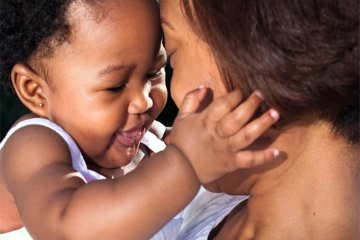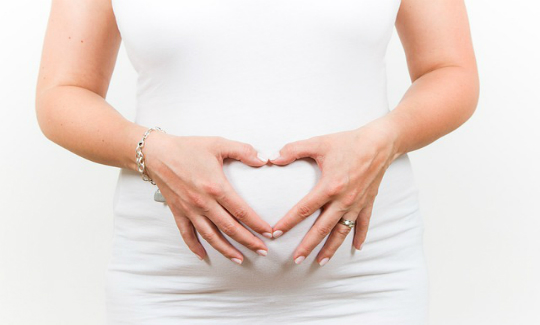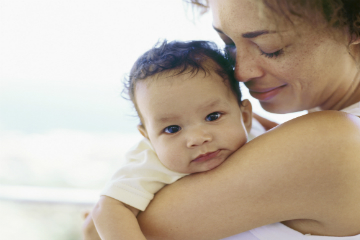Pregnancy Awareness Week 2015
(Western Cape Government)
If you're like most new moms, it may seem nearly impossible to find time for yourself with a new baby in the house – but only by taking care of yourself can you give your baby the best possible care. 
Try to carve out a few minutes each day to care for yourself. To rebuild your strength you will need plenty of rest, good nutrition and help during the first few weeks. Not only will that help you be less easily frustrated, irritable, and self-critical, you may even protect yourself from post-natal depression (PND).
Rest
Although a solid eight hours of sleep for you may not happen again for several months, the following suggestions may be helpful in finding ways to get more rest now.
- In the first few weeks, a mother needs to be relieved of all responsibilities other than feeding the baby and taking care of herself.
- Try to sleep when the baby sleeps.
- Many new parents enjoy visits from friends and family, but new mothers should not feel obligated to entertain. Feel free to excuse yourself for a nap or to feed your baby.
Nutrition and Exercise
In addition to rest, all mothers need to maintain a healthy diet to promote healing and recovery.
The weight gained in pregnancy helps build stores for your recovery and for breastfeeding. After delivery, all mothers need to eat well so that they can be healthy and active and care for their baby.
Exercise and daily physical activity should also be included with a healthy eating plan.
Along with balanced meals, breastfeeding mothers should increase the amount of fluids they drink. Many mothers find they become very thirsty while the baby is nursing. Water, milk and fruit juices are excellent choices.
Don’t be Afraid to Ask for Help 
All parents soon realise that babies require a lot of work. Although many parents do fine on their own, having someone else helping with the household responsibilities usually makes the adjustment to a new baby easier.
Parents can concentrate on the needs of mother and baby, rather than the laundry or dirty dishes. Helpers can be family, friends, or a paid home care provider.
This will help the new mother take care of herself, and keep her from limiting her time with her baby.
Feeling Blue
After your baby is born, hormonal changes may trigger symptoms of PND. You may feel sad, weepy and overwhelmed for a few days. There are many possible symptoms of PND, including:
- Inability to sleep or sleeping more than normal.
- Change in appetite.
- Extreme concern and worry about the baby or a lack of interest or feelings for the baby.
- Anger toward the baby, your partner, or other family members.
- Anxiety or panic attacks.
- Sadness or excessive crying.
- Difficulty concentrating or remembering.

- Feelings of doubt, guilt, helplessness, hopelessness, or restlessness.
- Mood swings marked by exaggerated highs and lows.
- Frequent calls to the paediatrician with an inability to be reassured.
- Recurrent thoughts of death, which may include thinking about or even planning suicide.
- Obsessive-compulsive thoughts and behaviours that are intrusive.
- Losing interest or pleasure in activities you used to enjoy.
- Withdrawing from friends and family.
- Having headaches, aches and pains, or stomach problems that don't go away.
If you are experiencing any of these symptoms of PND for more than two weeks, you need to consult with your doctor:
The Post Natal Depression Support Association and the Perinatal Mental Health Project also provide more information, support and advice to new mothers.


